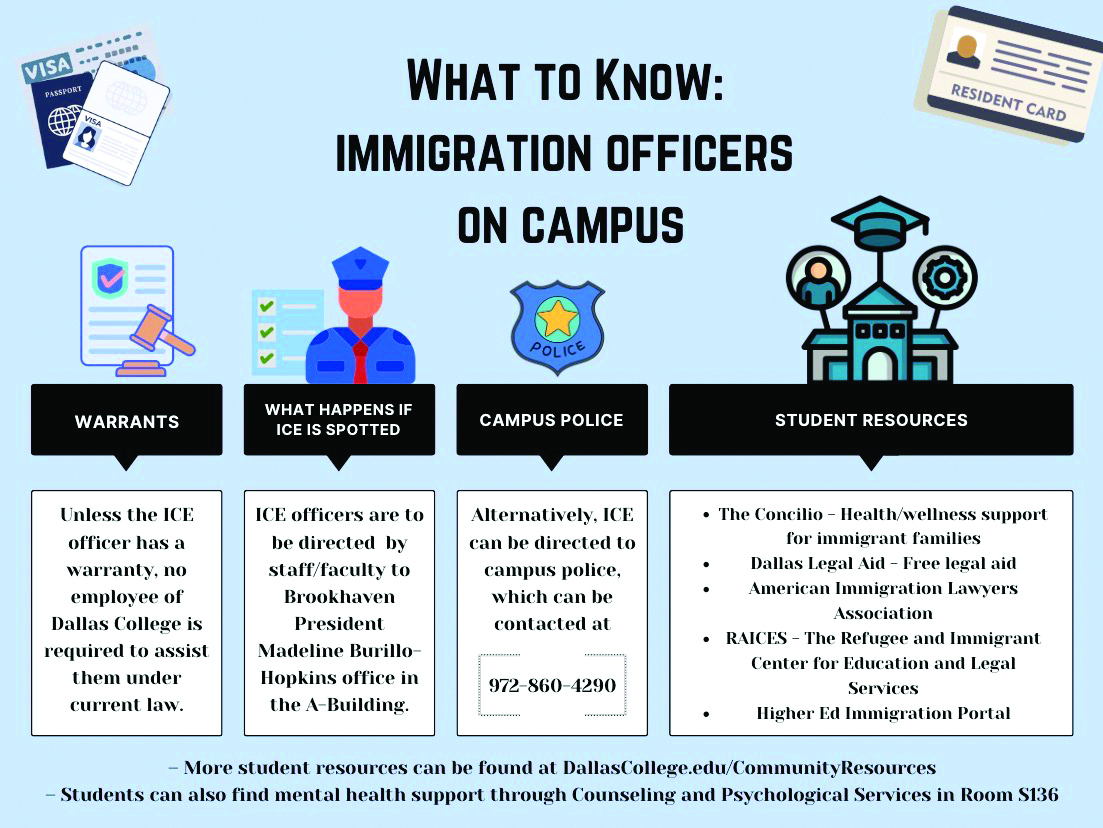By Aaron Ortega
Opinion Editor
Confined to a cell in York County Prison, Pennsylvania, a student’s pacing transpires primarily in the cell of his own mind as questions relentlessly keep him guessing at an uncertain future. Fears of never seeing his family again, whether he will remain in this country, and at what may seem a distant stretch, fears of obstacles to pursuing an education and achieving his dreams run through his mind.
In the spring of 2011, on a trip to New York for Spring Break, former Brookhaven College student Francisco Bocanegra was pulled over and taken into custody for an expired visa.
Years earlier, Bocanegra arrived in the U.S. at the age of 11. His parents decided to remain, as he would eventually begin attending public school. Assimilation into American life ensued, and Bocanegra realized his dreams lay in one day attending college and pursuing a degree in journalism.
His dreams were shelved only temporarily with his arrest, but this misfortune changed him. Bocanegra said, “It was definitely a setback, but it was something I learned from.” Bocanegra was eventually released and granted deferred action, and after facing possible deportation, he was handed temporary residence as well as a chance to forge ahead in completing his education.
The DREAM Act was inspired by countless stories just like this. Thousands of children are brought to American soil by their parents, not of their own volition. They may aspire to pursue an education, and fulfill their dreams, but have no solid guarantee of legal status. The DREAM Act may never see the light of day on the voting floor, so the stand-in for this bill, the Deferred Action for Childhood Arrivals, now serves as the temporary solution.
At the outset, the blueprints behind the DREAM Act are: to provide a clear pathway for undocumented youth who arrived in the U.S. before the age of 16, with good moral character, and who graduate from high school and go on to enroll in a two-year degree program or serve in the military, enabling them to eventually acquire temporary legal residency, according to www.dreamact.com. But when legislation failed to pass, what may have once been viewed as a beacon of inspiration for undocumented youth remained uncertain.
The DREAM Act drew many criticisms, as views from those who oppose the DREAM Act and the Deferred Action plan list various discourses from its possible fruition. Senator Jeff Sessions (R-Ala.) cited 10 reasons, in 2010, the Senate should dismiss the DREAM Act. In his account of justifications, Sessions’ primary argument lay in the necessary funds the DREAM Act would rely on. Sessions said, “The DREAM Act will be funded on the backs of hard-working, law-abiding Americans.” Sessions said passage of the act would increase public education costs, unemployment and fraud.
Sessions was not the only one to reference funding as the primary reason for protest against this legislation. In February of 2012, Rep. Ron Paul told a primarily Hispanic crowd at a town hall meeting: “I cannot endorse [it] because there is a lot of money involved. And you know there are a lot of subsidies in there between the billions of dollars.”
However, according to Carlos Manuel, Deputy District Director of district 3 of the League of United Latin American Citizens in Texas, the passage of the DREAM Act would open job opportunities for students who are qualified in areas that are left vacant and risk being filled overseas. “The boost would also be seen in having a new bracket of people paying federal income taxes, meaning higher revenue for the country,” Manuel said.
Necessary funding doesn’t represent the only obstacle, according to those opposed. The absent requirement for making it necessary that applicants finish a four-year degree plan to retain amnesty drew fire as well.
According to Manuel, the fact that individuals have already attained a high school diploma implies this nation has already invested many years and education into these youth.
Manuel said: “Furthermore, we have students who are in the process of finishing high school who are willing to pursue a higher education at the prospect of being able to work once they have a degree. Prior to that, there was no reward for the hard work and going the extra four years. Deferred action brings that reward.”
Despite the failure of the DREAM Act’s realization, through deferred action and prospects of new legislation, undocumented youth who embody what the legislation was originally intended for continue to strive for American achievements.
Bocanegra, who now attends the University of North Texas and plans to graduate within two more semesters, said: “It’s definitely a step in the right direction. I haven’t given up hope.”












